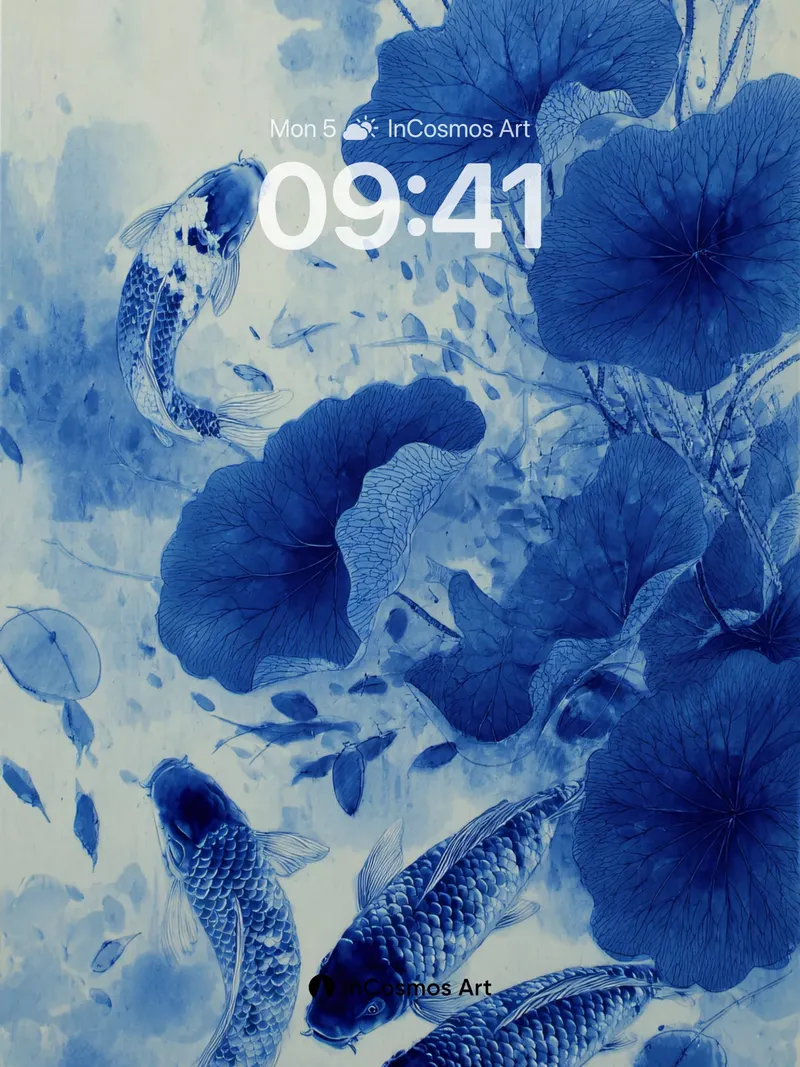Ripples glide, scales shimmer. Koi move through stillness, their forms and hues carrying millennia of cultural memory. They exist beyond ponds or canvases, evolving as Eastern spiritual symbols within modern contexts. Each fish's curve reflects harmony between nature and order; their collective movement suggests the flow of shared consciousness. From cobalt blue to gold leaf luster, from monochrome lines to red-and-white interplay, these variations are not merely visual expressions but projections of emotion and philosophy.
Continuity of Cultural Imagery
Koi originate from East Asian agrarian civilizations' reverence for nature and adaptation. Often placed in garden ponds, they symbolize abundance, resilience, and good fortune. This imagery recurs in traditional art, becoming a core element of auspicious motifs. Yet its meaning transcends decoration, transforming into psychological sustenance—during turbulent times, people find inner peace and hope by observing koi.
Reconfiguration in the Digital Era
Contemporary art integrates koi into digital media, endowing them with new expressive dimensions. High-resolution renderings reveal intricate scale patterns and light dynamics mimicking real water. AI-generated versions blur the line between reality and fiction, turning koi into reproducible, shareable cultural icons. This is not just aesthetic advancement but also digital preservation of cultural memory.
Resonance of Color and Emotion
Different koi colors convey distinct emotional signals. Deep blue signifies calm and introspection; gold represents wealth and enlightenment; red-and-white embody balance and vitality. When multiple hues coexist, they create visual tension and rhythmic motion, mirroring complex human emotions. This chromatic language reaches viewers directly, bypassing verbal interpretation.
The Boundary Between Nature and Artifice
Whether hand-drawn or algorithmically generated, koi remain suspended between nature and artifice. They are biological beings yet cultural constructs. This duality makes them ideal vessels for reflecting humanity’s relationship with the natural world. In an era of rapid urbanization, the tranquility and cyclical essence embodied by koi remind us to reevaluate our connection to environment and self.


















